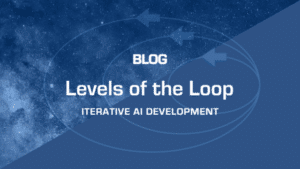Generative AI has emerged as a promising approach to improve the performance of machine learning models.
With the ability to generate new data, generative AI can create synthetic data, provide pseudo-labels for the unlabeled data, denoise the original data, and assist in active learning.
Depending on the specific application and use case, one or all of the following can be employed:

Image generated by NeuralBlender based off the prompt “generative AI”
- Unsupervised Data Augmentation: By creating new training data, generative AI increases the size of the training data, which enhances the performance of the machine learning models. This is especially beneficial when labeled data is limited, as the generated data can fill in the gaps and provide more diverse examples for the model to learn from.
- Auto-Labeling: In this approach, a generative AI model is trained on the unlabeled data and used to generate synthetic labels for the data. These auto-labeled examples can then be combined with the manually-labeled data and used to fine-tune models. The generative AI model can be used to improve the accuracy of the labels, and therefore the overall performance of the conditional (aka discriminative) model.
Want to learn more about how generative AI can improve your models?
- Data Denoising: Generative AI can also be used in data denoising with machine learning models. In this approach, the generative AI model is used to generate new data samples that are similar to the original data but without the noise or errors. These denoised data samples can be used to train the model, which can improve its ability to handle noisy or incomplete data.
- Active Learning: It can also be used in active learning to highlight examples that are most uncertain or difficult for the model to classify. These examples are then labeled by humans and added to the training data, which can improve the performance of the model being trained.
Overall, generative AI can be a powerful tool for improving the performance of machine learning models, especially in cases where labeled data is limited or expensive to obtain. However, it is important to use generative AI in a responsible and ethical manner, and to ensure that the generated data is representative of the original data and does not introduce bias or other issues.





